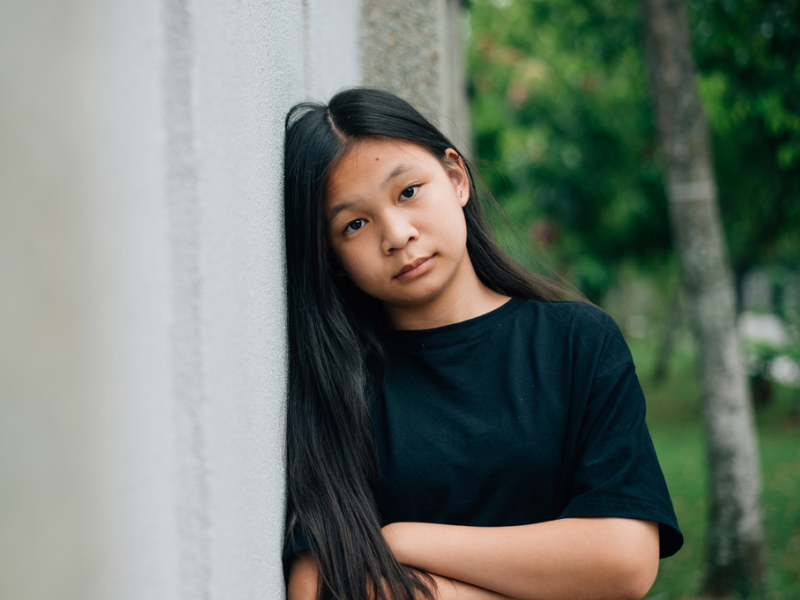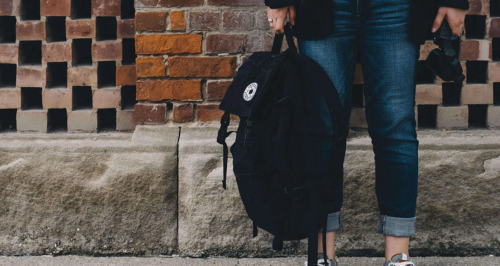
Table of Contents
Why Does Student Mental Health Suffer During Summer? Here’s What the Data Says
Written By: Charlie Health Editorial Team

Clinically Reviewed By: Dr. Don Gasparini
May 23, 2024
5 min.
Data that highlights how summer affects student mental health and how to access mental healthcare during the summertime (and year-round).
Learn more about our Clinical Review Process
Table of Contents
After the demands of the school year, many students eagerly await summer vacation. However, while summertime may bring warm weather, rest, and summer camp for some students, experts agree that it can be a trying time for young people’s mental health. During summer, many children and adolescents experience a shift from the structured support of school to a more unstructured environment, which can take a toll on their mental health.
These effects, though, are not felt equally. Research shows that students from marginalized backgrounds who disproportionately depend on schools for essential resources like food, medical and mental healthcare, and supervision are at a higher risk for negative emotional outcomes during the summer. For example, a multi-campus study of about 28,200 undergraduate students found that first-generation college students were more likely than continuing-generation college students to experience financial hardships, food and housing insecurity, and adverse mental health outcomes during the summer of 2020.
This is not to say that summertime is inherently harmful to students’ mental health. For many, summer vacation brings mental health benefits, like a break from school work and time with loved ones. A study of students across four years of college, for instance, showed a consistent “anticipatory stress spike” of 17% in the last two weeks of summer break as students faced the school year to come.
For those students whose mental health does suffer during summer vacation, experts believe there are steps that can be taken to improve well-being, like making structured summer programs more accessible. However, while there’s extensive research on summer’s impact on students (particularly marginalized students), it’s often underutilized in policy and practice.
To assess how summer affects student’s mental health, Charlie Health looked at the numbers, including data on summer crime rates and food insecurity, which play a role in well-being. We also offer some tips on how to access mental healthcare during the summer (and year-round).
Join the Charlie Health Library
Get mental health updates, research, insights, and resources directly to your inbox.
You can unsubscribe anytime.
Many students lose necessary school-based mental health services during the summer
Students are six times more likely to access mental healthcare when services are offered in school, according to U.S. Secretary of Education Miguel Cardona. For those many students who access mental healthcare at school, this support abates over the summer, possibly exacerbating or leading to increased mental health issues. As research has consistently shown, mental health conditions often worsen when left unaddressed.
Increased summer crime rates can take a toll on student mental health
Crime rates and the risk of crime victimization generally increase during the summer, according to The Department of Justice, and exposure to violence can take a toll on mental health. For example, a 2018 study found that depression symptoms are 61% higher in crime hot spots than cold spots (3.68 versus 2.28, where higher ratings mean greater symptoms), and PTSD symptoms are 85% higher in those places with more crime (0.72 versus 0.39). Children and youth from low-income families and neighborhoods and those who are minorities are at greatest risk since they disproportionately live in areas with higher levels of crime — over three-quarters (77.71%) of those studied in crime hot spots were African American, and over half (54.55%) had a household income of $25,000 or less, the study found.
Many students face food insecurity over the summer, resulting in mental health issues
Access to school-based food and nutrition programs is curtailed during the summer, resulting in an increased risk of food insecurity among children and youth. Research has consistently found that food insecurity is positively correlated with mental health conditions and symptoms, like rates of depression and stress. A study based on national data of U.S. adolescents found that food insecurity was linked to higher chances of mood, anxiety, behavior, and substance use disorders. A rise in food insecurity resulted in a 14% increase in the likelihood of experiencing a mental health disorder in the past year, the 2012 study found.
How to address student mental health during summer vacation
Addressing student mental health during summer vacation is, first and foremost, a systemic issue. Above all, lawmakers need to allocate enough resources and funding to services that improve mental healthcare for students — year-round and during the summer, and particularly within marginalized communities. Below are some other steps that can be taken to address student mental health during the summer.
Find accessible summer programs
As mentioned, experts have found summer programs to be effective in promoting mental health outcomes among students. However, summertime learning and enrichment opportunities often draw on the resources available through a child’s parents and their local communities. As a result, children from more economically advantaged families and neighborhoods have greater access to resources from their families and communities. However, families can explore various local resources that may offer accessible summer programming — such as community centers and libraries — and get in touch with schools, local government agencies, or nonprofit organizations that may have information about program scholarships.
Maintain a consistent routine
Establishing a consistent daily schedule can help students maintain a sense of structure and predictability during the oft-unstructured summer time of vacation. Try encouraging regular sleep patterns, mealtimes, and unstructured leisure time. Also, it’s a bonus if some of the time is set aside for self-care practices like relaxation techniques, exercise, or hobbies, which can promote stress management and overall well-being.
Seek mental healthcare
If a student’s mental health is suffering during summer vacation, it’s important to seek professional support. One way to do this is to specifically look for providers who work with students over the summer or organizations focused on mental healthcare for students. If you’re looking for more than once-weekly mental health support for students, consider Charlie Health’s student-specific Reset & Recharge summer program. This 9-12 week program helps students (11-23) reset their mental health and recharge their coping skills in virtual peer groups, preparing them for the school year ahead.
References
https://pubmed.ncbi.nlm.nih.gov/31940162/
https://escholarship.org/uc/item/19d5c0ht#main
https://home.dartmouth.edu/news/2024/03/study-tracks-shifts-student-mental-health-during-college
https://bjs.ojp.gov/content/pub/pdf/ics.pdf
https://www.ncbi.nlm.nih.gov/pmc/articles/PMC6394830/
https://www.ncbi.nlm.nih.gov/pmc/articles/PMC9014344/






